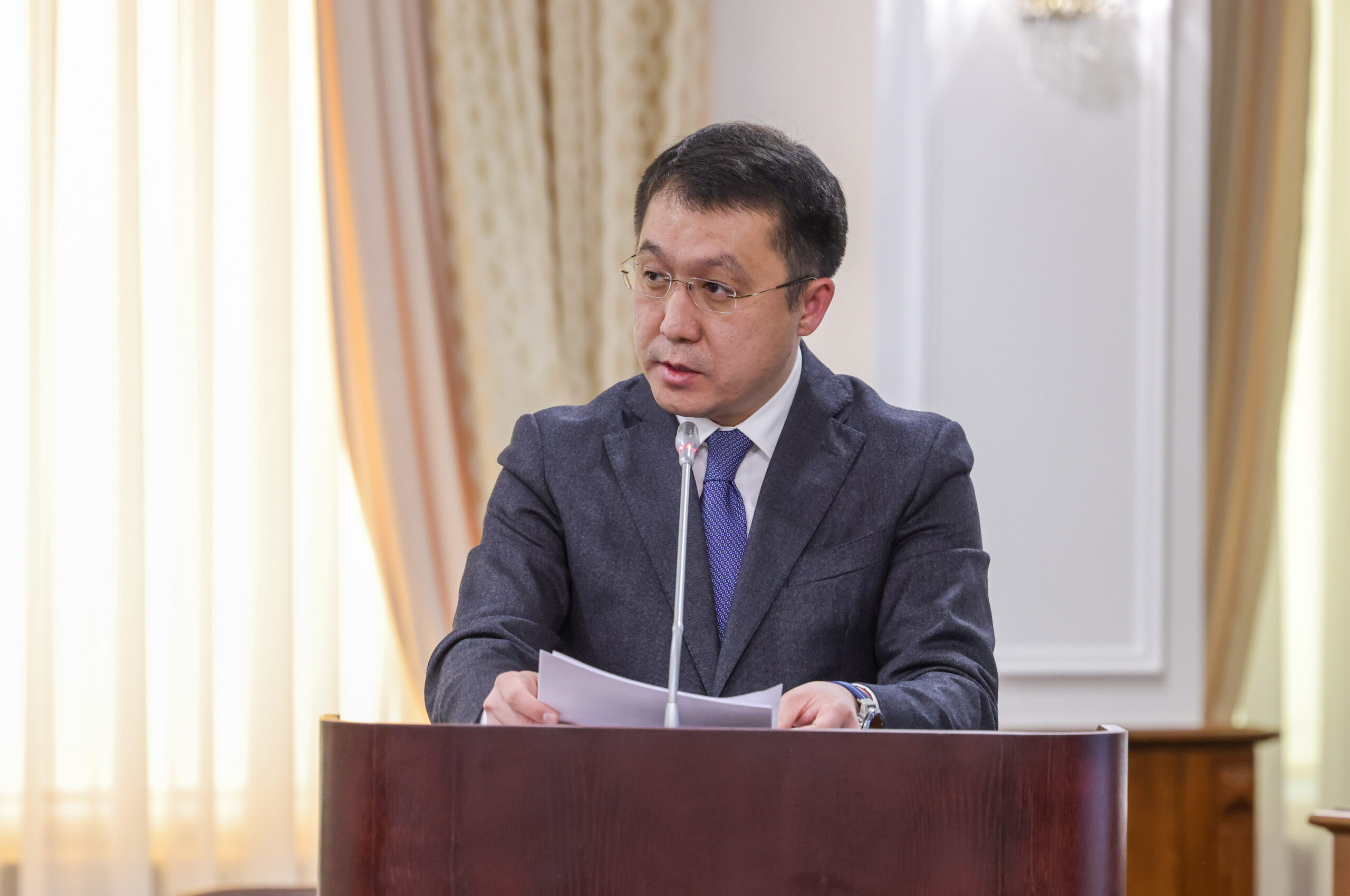ASTANA — Prime Minister Alikhan Smailov instructed the Ministry of Transport and the Kazakhstan Temir Zholy (KTZ) national railway company to devise a comprehensive set of measures by the end of January 2024 for developing maritime infrastructure. This was outlined during a Dec. 12 government meeting, as reported by the Prime Minister’s press service.

Smailov also instructed the KTZ, the Ministries of Finance and Agriculture, and the Border Service on Dec. 12 to integrate information systems to minimize administrative barriers in cargo processing. Photo credit: Primeminister.kz
Smailov also directed KTZ, the Ministries of Finance and Agriculture, and the Border Service to integrate information systems to minimize administrative barriers in cargo processing. The Prime Minister’s directive encompasses initiatives to expand the merchant fleet, increase port capacity, and streamline cargo transshipment processes.
Advancements in Railway Infrastructure
Minister of Transport Marat Karabayev revealed plans for developing railway infrastructure adjacent to seaports. Key projects include constructing 404 km of additional tracks on the Beineu-Mangystau, Zharyk-Sekseul, and Shalkar-Kuryk railway sections. Additionally, five stations are set to undergo modernization, and the Shalkar-Beineu section will see the introduction of automatic blocking. These measures are part of the approved plan to modernize the main railway network until 2030. New tracks leading to the terminals of the Aktau port, along with corresponding station infrastructure, will also be constructed.

Minister of Transport Karabayev said Kazakhstan is set to revolutionize its transport corridors towards digitalization. Photo credit: Primeminister.kz
Kazakhstan’s Digital Transformation in Transport Corridors
Karabayev said that Kazakhstan is set to revolutionize its transport corridors towards digitalization. He mentioned that the Singaporean company PSA developed the Digital Trade Corridor platform for the Trans-Caspian International Transport Route, integrating it with the Xi’an Dry Port’s information system. Xi’an Dry Port, a vital Chinese transport and logistics hub, handles nearly 30% of containers heading to Europe. The digital platform is also being integrated with the information systems of the Baku port, Azerbaijan Railways, and Georgia’s transport organizations. Expected to become operational by the end of March, the platform will digitize the entire cargo movement from China to Europe.
Strategic Partnerships and Automation Initiatives
According to Karabayev, KTZ entered a strategic partnership agreement with Abu Dhabi Ports on Dec. 2 to further advance digitalization efforts. This collaboration aims to automate technological processes at checkpoints along the North-South corridor, aligning with the standards of the International Maritime Organization. Additionally, cooperation with customs authorities is underway to transition sea checkpoints to 24-hour operation, ensuring a seamless and efficient transportation network.

